“When the press began to be worked, hundreds of copies materialised in less time than it took to speak the text.” Shillingsburg, L. Peter. From Gutenberg to Google: electronic representations of literary texts. (Cambridge, Cambridge University Press, 2006. pp.1.)
UNLEASHED THE NEW HUMAN KIND
Hand-copying would only make a few copied pages in a workday. On the other hand, hand-printing would produce about 40. Accelerating the process, a single Renaissance printing press could copy up to 3,600 pages per workday. When the printing press was introduced and commonly used by translators, they broke the traditional method and came up with a new solution by applying the translation work directly onto the machine.
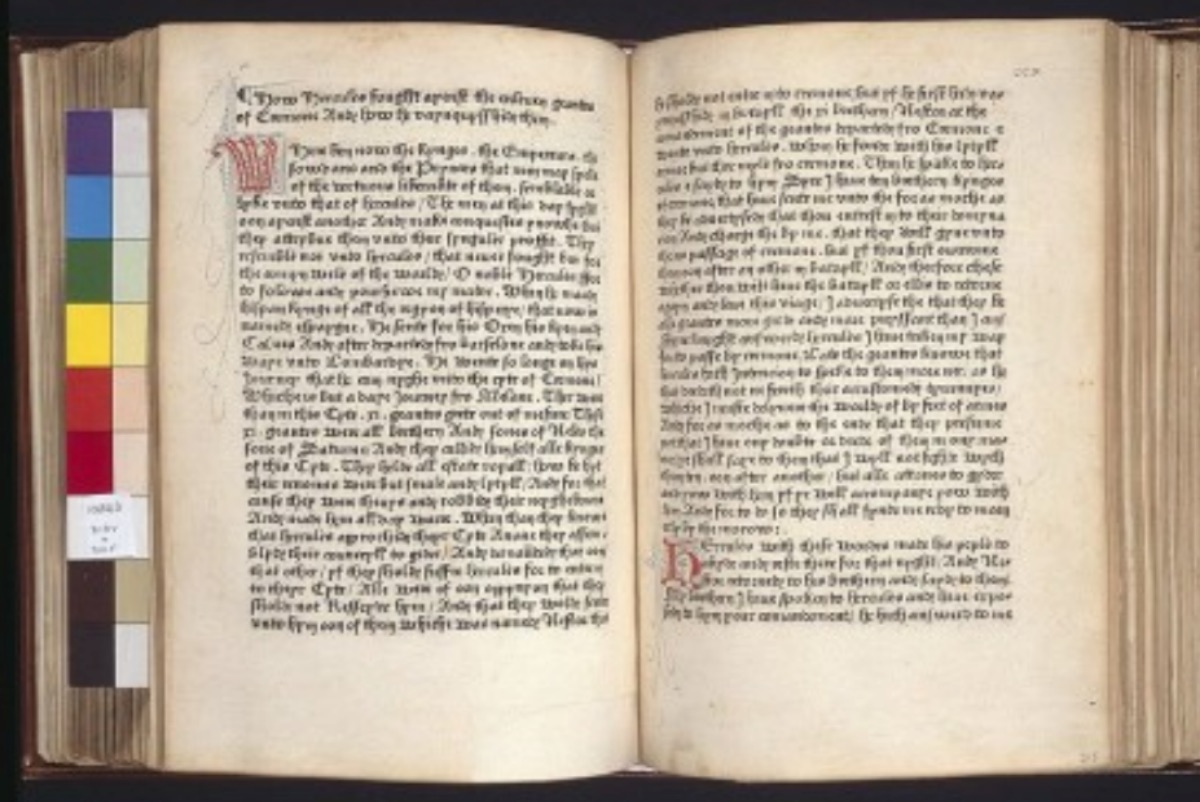
A photograph of Raoul Lefevre’s “Recuyell of the Historyes of Troye,” the first book printed in English, which was translated by William Caxton; 1473; the History of English.
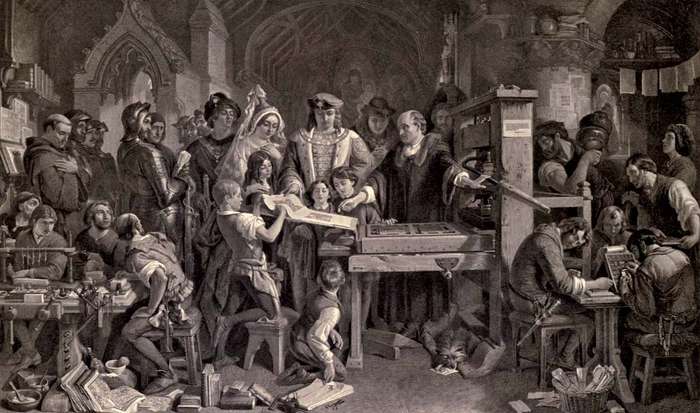
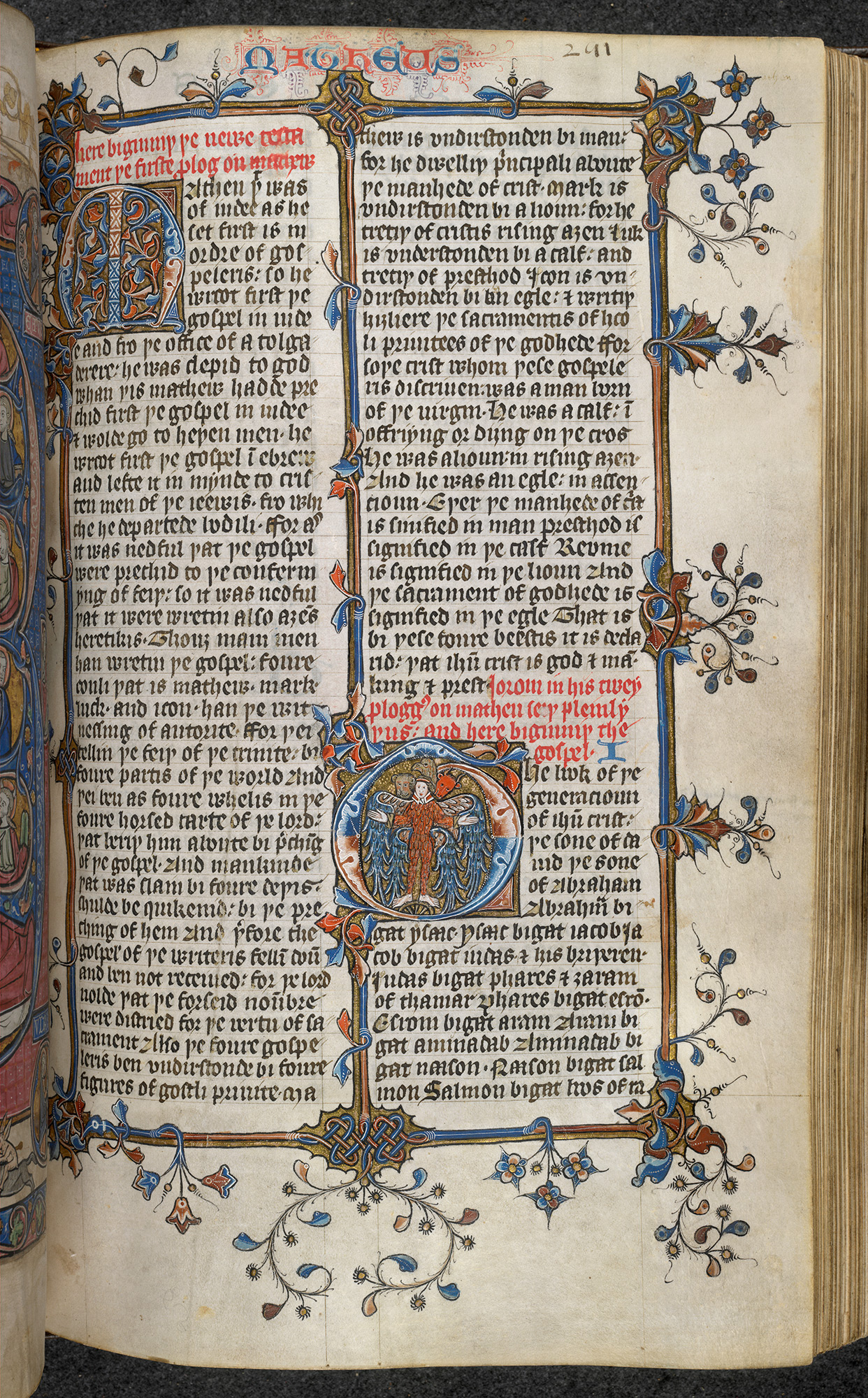
William Caxton showing the first page from his printing press to King Edward IV.Cassell's Illustrated History of England published by Cassell and Company, Limited; 1909; Encyclopedia Britannica.
Early 15th century Bible in English after the translation usually ascribed to John Wicklitre, n.d., British Library.
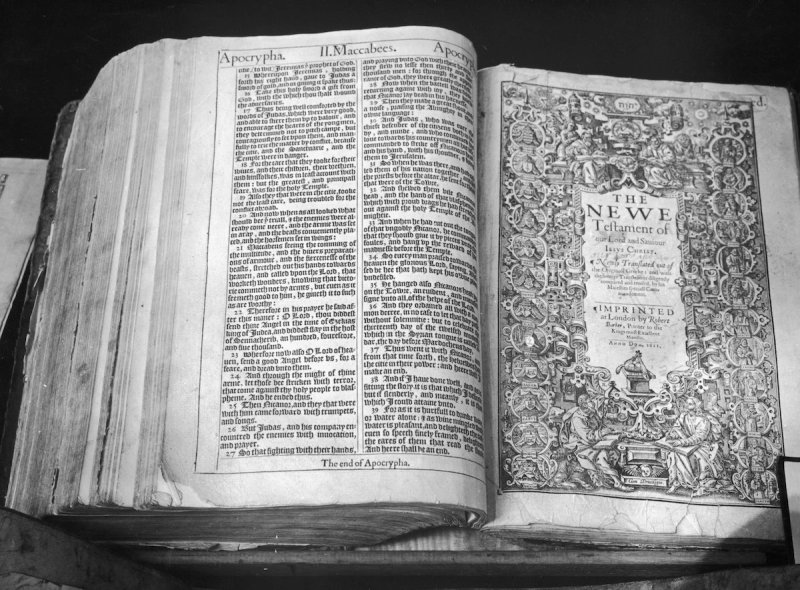
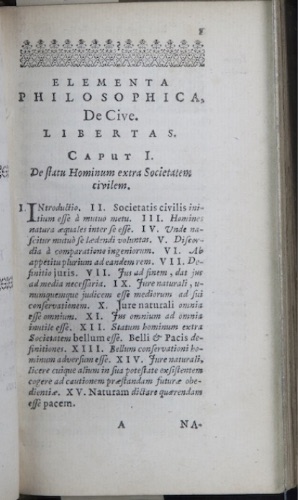
The first issue of the first edition of the 'Authorised Version' of the English Bible, printed in London in 1611 by Robert Barker; 1953; Time.
Thomas Hobbes’s highly influential work on “the citizen” published in English translation in 1651 as Philosophical Rudiments Concerning Government and Society, n.d., Drukce.
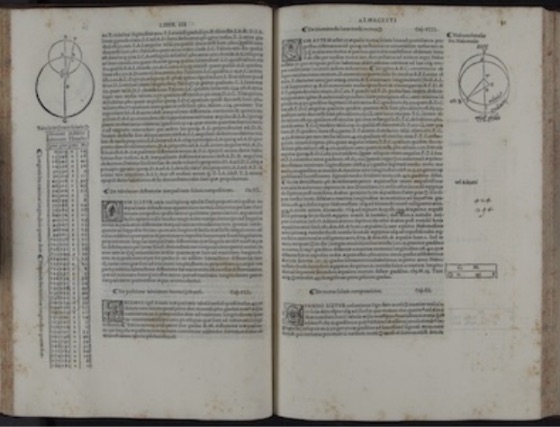
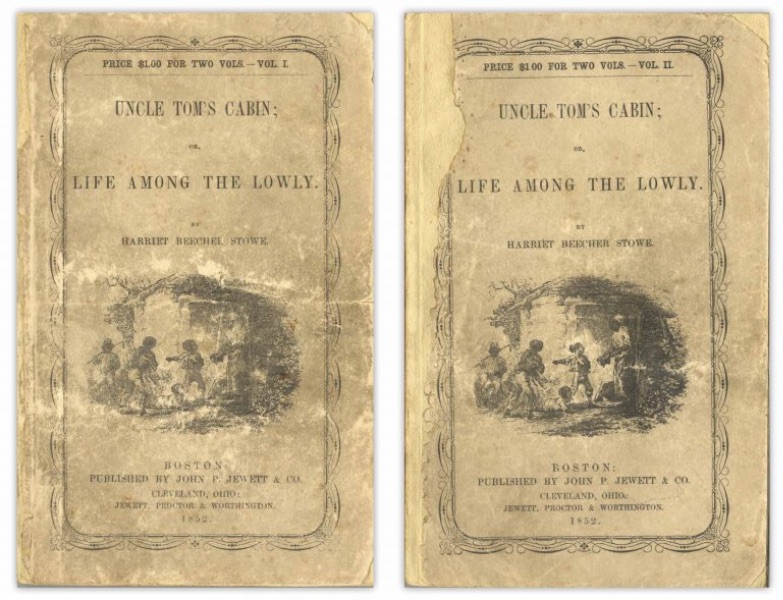
Ptolemy’s Epitome of the Almagest, which was translated from Greek to Latin, showing the active transformation of language with the help of the printing press; n.d.; Drucker.
Harriet Beecher Stowe’s Uncle Tom’s Cabin was translated into 8 different languages in the 19th century; n.d.; Drucker.
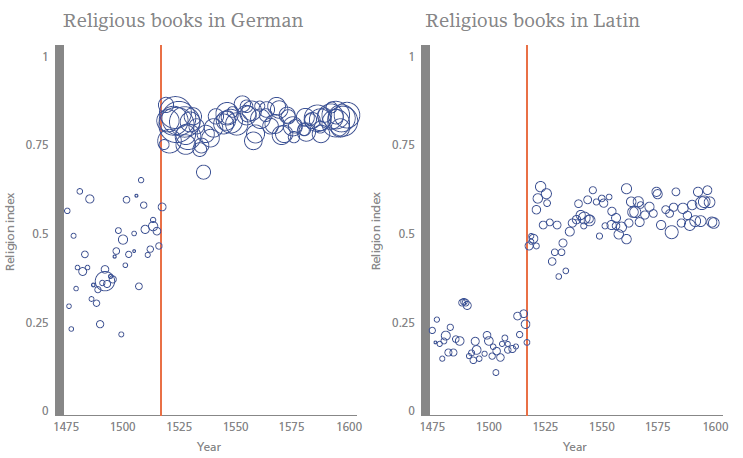
This graph shows the shifting content of religious printing in what is now Germany before and after Martin Luther circulated his 95 theses criticising the Catholic Church in 1517; n.d.; LSE Impact of Social Sciences Blog.